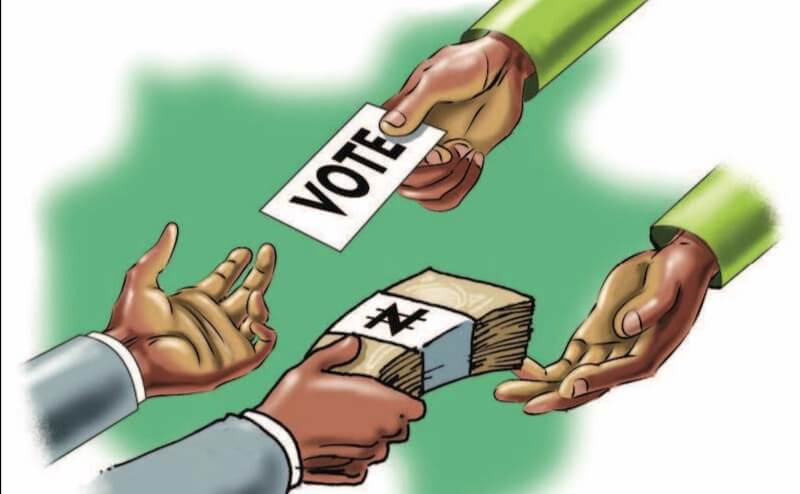The ‘No Shishi’ mantra of supporters of Peter Obi, the Labour Party presidential candidate, has been endorsed by The Electoral Forum to fight vote buying in 2023.
The term is used by supporters of Obi to mean they won’t give or accept monetary inducement to support the LP candidate.
Advertisement
The Electoral Forum, which seeks to help enhance electoral integrity and credibility in Nigeria, is advocating mass adoption of the mantra by civil society organizations to sensitize the citizens on the dangers of vote-buying which include election of low-quality and questionable leaders into public offices.
The endorsement came as part of recommendations made at the end of a policy dialogue organised by the think tank and attended by the Chairman of the Independent National Electoral Commission (INEC), among others.
The dialogue themed ‘Addressing Vote Trading in Nigeria: Lessons from Global Comparative Experiences’ had among its panelists Obo Effanga, INEC’s immediate past REC for Rivers; Professor Olatunde Babawale, Provost, Anti-corruption Academy and member of The Electoral Forum; and Professor Mike Ushie, Secretary FOSIECON, and Chairperson, Cross River State Independent Electoral Commission (CRSIEC).
Others are Professor Irene Pogosson, Department of Political Science, University of Ibadan; Tari Oliver, 2023 PDP Presidential Aspirant; and Babatunde Osibode, Chairman, Ogun State Independent Electoral Commission.
Advertisement
The Forum chaired by Professor Adebayo Olukoshi obaserved that Nigeria had become “a huge vote market, where ‘wholesale’, ‘middlemen’ and ‘retail’ vote-buying (and lately vote-selling) are a common feature.”
It said the global phenomenon thrives in developing countries due to high level poverty and that policians who are the key actors use it as tool to get bloc votes during elections.
Due to improved electoral system that increasingly makes it difficult to buy votes , the think tank said politicians have become more desperate and are increasing their stake to induce voters.
“In the last governorship election in Ekiti for instance, there were reports of voter’s cards (PVCs) going for between N10,000 and N20,000.
“Many politicians engage in the act of buying votes in kind in every election cycle (e.g. digging of community bore-holes, scholarship schemes, empowerment schemes, etc.),” it said.
Advertisement
To address the challenge, the Forum recommended economic empowerment of citizens to enable them make discerning choices of leaders during elections.
The National Assembly was also urged to expedite action on the proposed Electoral Offences Commission bill so the electoral offences can be dealt with decisively.
Other recommendations include: “The CSOs and other mass-based groups should consider riding on the “We no dey pay shishi” momentum generated by one of the political parties to engage more with Nigerians before and after the 2023 elections.
“The Constitution provides for political party accounts to be audited before and after elections. This presupposes that the party, and not the candidate, should fund election campaigns and other election-related activities. This way, monies are easily tracked and accounted for.
“Anti-corruption agencies like the EFCC and ICPC should consider developing a collaborative framework with political parties to ensure that the accounts of political parties are regularly scrutinised.
“The security component of the electoral process needs to be more intelligence-oriented. It is incumbent, therefore, on the DSS to be more involved in the electoral process and deploy its intelligence apparatus to fight the vote trading menace. It is obvious that the police alone cannot adequately and effectively police the process.
Advertisement
“There should be greater buy-ins from all stakeholders across the spectrum of society to ensure that vote trading is tackled decisively. To this end, voter education and sensitisation should be a deliberate and consistent part of our national life.
“Political offices are so financially incentivised that politics has become one huge industry attracting all sorts of career politicians. There is an urgent need to make political offices less attractive to this category of politicians. Standards and knowledge should be the hallmarks of the political leadership and governance space.
“There is the need to start auditing the lifestyle and wealth of political office aspirants in order to stop those who have links to corruption and unaccounted wealth.”
Speakers and attendees at the dialogue included the Deputy Senate President Ovie Omo-Agege (represented by his chief staff, Dr Otive Igbuzor), INEC Chairman, Professor Mahmood Yakubu (represented by National Commissioner May Agbamuche-Mbu), and Chairperson, House Committee on INEC, Hon. Ayisha Dukku, Chairman ICPC, and the Executive Secretary of the National Human Rights Commission, Anthony Ojukwu, among others.



